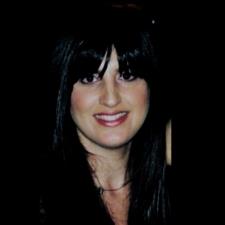Lexie K.
asked • 03/31/17Proofreading
Hey, can anyone here proofread my essay on religion an science? would appreciate a constructive feedback. thanks
I have confidence in scientific belief because I live in the world that science built. Without antibiotics, vaccines, electricity, safe and plentiful food, and other benefits produced by careful observation and analysis of the world, our lives would be shorter and much more difficult. For millennia, when life was brutish and short, people prayed for God to spare a dying child or relieve unbearable suffering. But only when penicillin was added to prayer did things improve.
Science is rigorous. Scientific discoveries are not isolated, but rather fit together in a framework of knowledge. Today's discoveries rest on earlier discoveries, and serve as a foundation for discoveries to come. Science is tightly constrained by this framework. You can't remove a fact that you find inconvenient, and you can't add one that suits your fancy. The facts snap together like pieces of a puzzle. If a piece is missing, scientists can often predict what the missing piece must look like in order for it to fit into place. This feature of the framework has led to predictions of things like the neutrino, and other bits of the universe that we would never have imagined were it not for the correctness of the scientific model. The prediction of Armageddon didn't happen, but the neutrino did.
Science is consistent. There is only one science. The rules by which the world works do not change depending where you were born, or which Bible you read. There is no Catholic physics, or Jewish geology, or Islamic chemistry. Every faith makes a different promise, and there are thousands of faiths, each one distrusting all the others, and all the others distrusting yours. If that is the path to enlightenment, it is circular, and following it gets you nowhere.
Science enlarges the world. It expands our limited perceptions. It can peer down deeply into the atom, and even smaller, down to the scale where something and nothing meet. Science had to change some of its core beliefs to adapt to this new world, but adaptation and change are essential to learning and understanding.
Religion makes the world smaller. It denies change. It makes claims that contradict reality, and then dares anyone to object. It replaces useful, reliable, exciting, transformative knowledge with pronouncements from ancient texts. The understanding of the world at the time the texts were written was far less than it is today. But my Catholic education required that I live in that world. It would have been so easy to do so. Just close your mind, and open your heart, and stumble around in all directions with other believers, bouncing off the walls of this tiny world, getting nowhere and quoting from the Bible, confident that when you die, you would Know All, although if you weren't interested when you were alive I can't see why you would care after you're dead.
I'm not content to live in a world I don't understand. I think it's our duty, and our birthright, to do everything we can to understand as much as we can about ourselves and the universe we live it. It's sad to see people spinning their intellectual wheels in the sand, pontificating in great detail about an invisible world, while ignoring the realities of the one they're standing on.
Of course, gender equality is in the eye of the beholder. In Finland and in the United States it means two entirely different things.
Tools & Sources
Science is rigorous. Scientific discoveries are not isolated, but rather fit together in a framework of knowledge. Today's discoveries rest on earlier discoveries, and serve as a foundation for discoveries to come. Science is tightly constrained by this framework. You can't remove a fact that you find inconvenient, and you can't add one that suits your fancy. The facts snap together like pieces of a puzzle. If a piece is missing, scientists can often predict what the missing piece must look like in order for it to fit into place. This feature of the framework has led to predictions of things like the neutrino, and other bits of the universe that we would never have imagined were it not for the correctness of the scientific model. The prediction of Armageddon didn't happen, but the neutrino did.
Science is consistent. There is only one science. The rules by which the world works do not change depending where you were born, or which Bible you read. There is no Catholic physics, or Jewish geology, or Islamic chemistry. Every faith makes a different promise, and there are thousands of faiths, each one distrusting all the others, and all the others distrusting yours. If that is the path to enlightenment, it is circular, and following it gets you nowhere.
Science enlarges the world. It expands our limited perceptions. It can peer down deeply into the atom, and even smaller, down to the scale where something and nothing meet. Science had to change some of its core beliefs to adapt to this new world, but adaptation and change are essential to learning and understanding.
Religion makes the world smaller. It denies change. It makes claims that contradict reality, and then dares anyone to object. It replaces useful, reliable, exciting, transformative knowledge with pronouncements from ancient texts. The understanding of the world at the time the texts were written was far less than it is today. But my Catholic education required that I live in that world. It would have been so easy to do so. Just close your mind, and open your heart, and stumble around in all directions with other believers, bouncing off the walls of this tiny world, getting nowhere and quoting from the Bible, confident that when you die, you would Know All, although if you weren't interested when you were alive I can't see why you would care after you're dead.
I'm not content to live in a world I don't understand. I think it's our duty, and our birthright, to do everything we can to understand as much as we can about ourselves and the universe we live it. It's sad to see people spinning their intellectual wheels in the sand, pontificating in great detail about an invisible world, while ignoring the realities of the one they're standing on.
Of course, gender equality is in the eye of the beholder. In Finland and in the United States it means two entirely different things.
Tools & Sources
1. http://www.hemingwayapp.com/
2. http://essay.expert/
3. https://plato.stanford.edu/entries/religion-science/
4. https://en.wikipedia.org/wiki/Relationship_between_religion_and_science
More
1 Expert Answer

Jill J. answered • 09/05/18
Tutor
0
(0)
Seasoned Proofreader/Editor with 30+ years experience
This is a "hot topic".
I did notice some points within that could use a bit more clarification and/or tone modifications. This may also flow more effectively with a little restructuring after doing a few changes (which is typically not part of "proofreading" but is "editing"). I'd be happy to help you through this again in a tutor session, if you like.
For the lack of proofreading marks to indicate fixes, I have bolded slight mistakes. The word gender is underlined for lack of a symbol indicating that you do not need that word. Gender is not the topic. In my opinion, and this is just an opinion... you started out a little jumpy, got going well in the middle, and ran out of steam at the end.
Hey, can anyone here proofread my essay on religion on science? I would appreciate a constructive feedback. thanks
when you die, you would "know all". Although, if you weren't interested when you were alive, I can't see why you would care after you're dead.
I'm not content to live in a world I don't understand. I think it's our duty and our birthright, to do everything we can to understand as much as we can about ourselves and the universe we live in. It's sad to see people spinning their intellectual wheels in the sand, pontificating in great detail about an invisible world while ignoring the realities of the one they're standing on.
Of course, gender equality is in the eye of the beholder. In Finland and in the United States it means two entirely different things
Of course, gender equality is in the eye of the beholder. In Finland and in the United States it means two entirely different things
Still looking for help? Get the right answer, fast.
Ask a question for free
Get a free answer to a quick problem.
Most questions answered within 4 hours.
OR
Find an Online Tutor Now
Choose an expert and meet online. No packages or subscriptions, pay only for the time you need.





Vivek K.
11/10/17